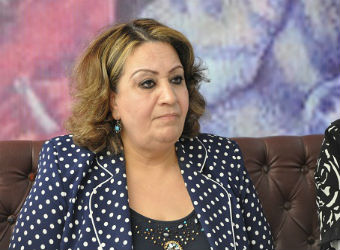Reuters
CAIRO: One of Egypt s most prominent Islamist groups, which waged a bloody campaign in the 1990s, denied on Sunday it had made any alliance with the global Al-Qaeda militant network led by Osama bin Laden.
Meanwhile, a former official in Egypt s Al-Gamaa Al-Islamiya said that even if some members had joined Al-Qaeda, as Al-Qaeda deputy head Ayman Al-Zawahri said in a video aired on Al-Jazeera television on Saturday, it was unlikely that most would do so.
Al-Gamaa Al-Islamiya in Egypt stresses the lack of truth in what Al-Jazeera aired by Dr. Ayman Al-Zawahri about it joining Al-Qaeda, and categorically denies this, the organization said in a statement on its website, www.egyptianislamicgroup.com.
The Gamaa (group) fought a bloody campaign against the government in the 1990s to set up a purist Islamic state before ultimately declaring a truce in 1997.
Former Gamaa leader Sheikh Abdel Akher Hammad told Al-Jazeera on Sunday from Germany: If [some] brothers … have joined, then this is their personal view and I don t think that most Gamaa Islamiya members share that same opinion.
Egypt analysts have downplayed Al-Zawahri s announcement that a big faction of the Gamaa had switched over, saying there was no evidence al Qaeda had major support within the Gamaa ranks.
In the video, Al-Zawahri named Mohamed Al-Islambouli as one of those who joined al Qaeda, referring to the Gamaa leader whose brother Khaled killed Egyptian President Anwar El-Sadat in 1981.
A man introduced by Al-Zawahri as another Gamaa leader, Mohamed Hakaima, later appeared in the video to confirm the unity move. But several analysts said he was not a major player.
I think he doesn t represent anybody here in the country, said Diaa Rashwan, an expert on Islamist groups at the Al-Ahram Centre for Political and Strategic Studies, describing Hakaima as a low-ranking member of the group.
Egypt detained many thousands of Gamaa members or sympathizers in the 1990s when the group was waging a low-level guerrilla war against security forces, mainly in the south.
But hundreds have since come out of detention after renouncing violence. Gamaa leaders declared a truce after a deadly 1997 attack on tourists at a pharaonic temple in Luxor.
It is not right to say that leaders of Al-Gamaa Al-Islamiya are joining Al-Qaeda. This is not precise. Maybe we can say it is some individuals, London-based activist Yasser Sirri said.
The specter of militancy has recently returned to Egypt with a string of three deadly attacks targeting Red Sea resort areas in the Sinai Peninsula over the past two years, attacks that Egypt has blamed on Sinai-based militants.
The Gamaa has not been implicated in those bombings, and analysts said they did not expect any change in their policy after the Al-Qaeda announcement, saying the Gamaa leadership had clearly chosen to avoid violence in Egypt.
Islamic political groups in Egypt say they want Islamic Sharia law but differ on ways of bringing it about. They also oppose the United States over support for Israel.
I think [the Gamaa] are still under control, said Hala Mustafa, editor of Al-Ahram Quarterly Democracy Review.
There was a kind of political deal between the regime and these groups for not attacking or targeting any internal targets or local figures. That continues today. I am not sure the Gamaa or the regime will drop this deal, she said.

